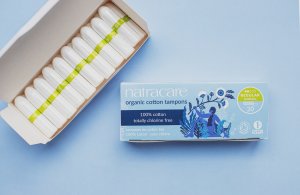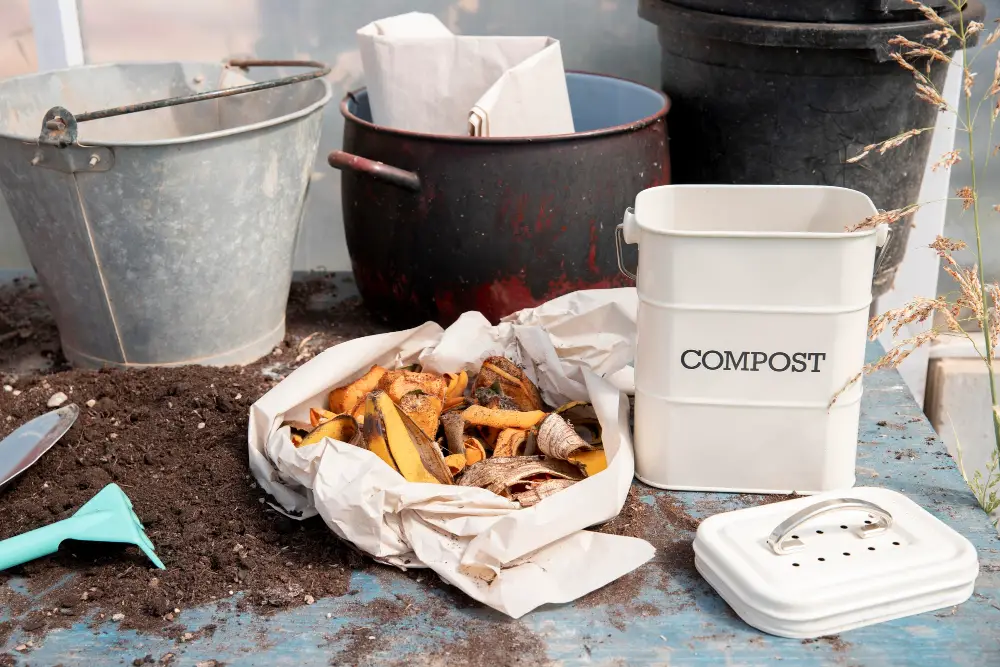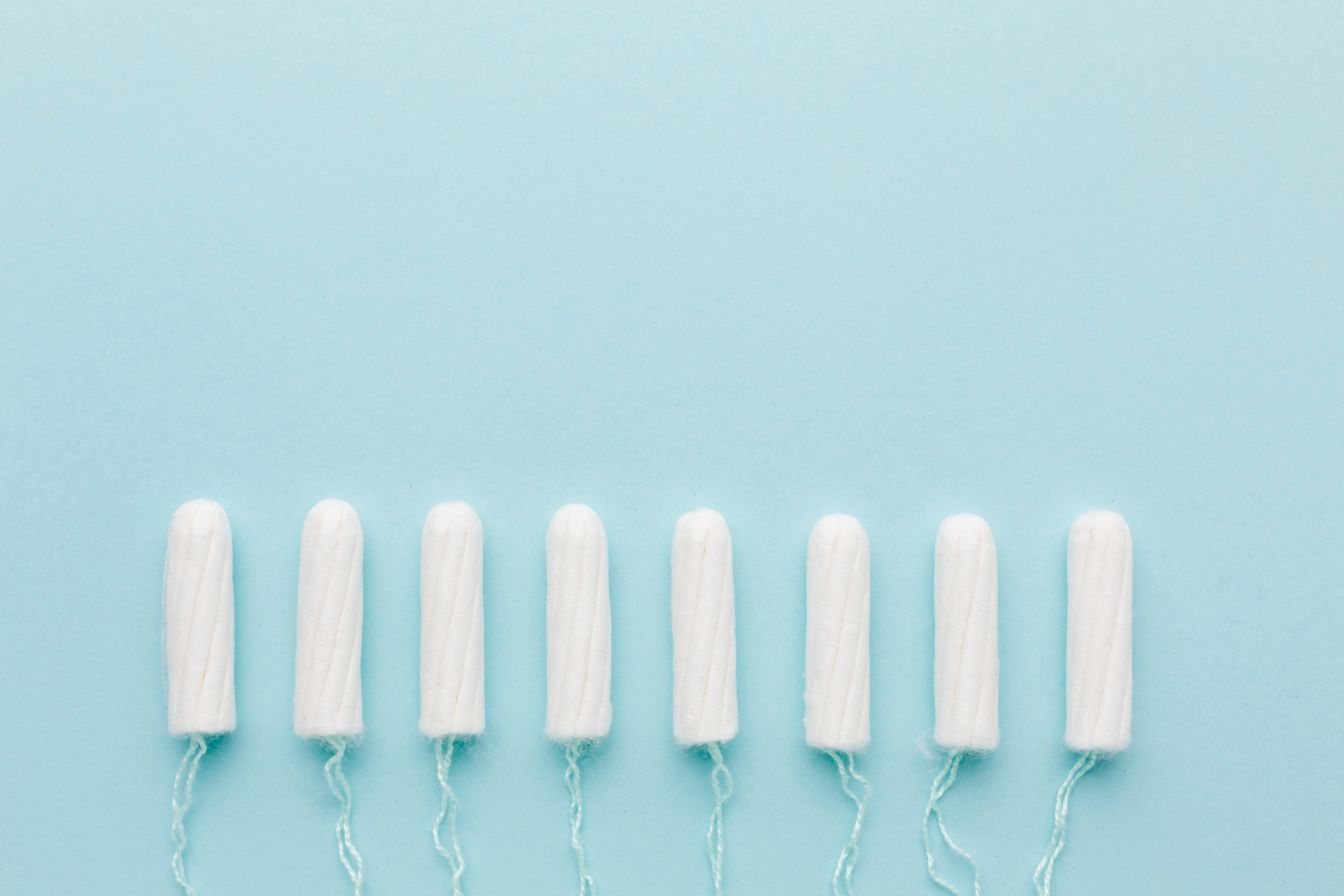Yes, you can compost tampons. Tampons made of organic material are brown compost; we can combine them with green compost to speed up the decomposition process. We cannot compost conventional pads made of plastic. They have a detrimental effect on the surrounding environment.
Your hygiene products, like the menstrual cup, paper towels, or toilet paper, are among the many everyday objects that do not have to end up in a landfill. But there’s more!
Find out if you can compost your tampons, how long the composting process takes, and how to do it safely.
Table of Contents
Can You Compost Tampons?
Since old clothing made from 100% cotton or other natural materials may be composted, there is no reason we cannot compost natural menstrual products.
If you think about it, menstrual blood is rich in sodium, calcium, phosphate, and iron, making it an excellent source of natural fertilizer for your plants.
Used tampons still contain blood from previous periods, so extra caution is required.
If you have a typical composting bin, we do not recommend using the tampon compost to produce your food; instead, use it to grow plants and rebuild depleted soils. Menstrual fluids should be treated with caution because they pose a potential health risk.
However, if you let the compost sit for long enough and keep it in a properly sealed container, you can use it without any risks.
What Types of Tampons Are Compostable?
There is a widespread misunderstanding that if something is biodegradable, it immediately becomes fit for the compost bin. That is not the case. The terms “biodegradable” and “compostable” are not synonymous.
If the biodegradable item, for example, has chemicals or other compounds that may contaminate the heap, then you should not include it in a pile.
If they are composed of biodegradable materials, you can compost sanitary napkins. However, if you buy biodegradable products with plastic applicators, they may only partially degrade.

That is because the tampon components created from natural substances will biodegrade, but the plastic components won’t, and their decomposition process will take forever.
Tampons made of rayon can also be broken down in the compost. However, composting rayon, also known as viscose fibers, might cause synthetic and sometimes hazardous residues in the finished product.
That is because rayon is a highly processed material that has been subjected to various chemicals to get its final form.
On the other hand, tampons made of organic cotton that are 100% GOTS-certified are perfect for composting because they do not contain any potentially harmful pesticide residues, such as glyphosate.
In addition, cotton is a natural substance that can be composted and degraded into its natural state in its entirety.
When it comes to composting old tampons, there are a few different schools of thought.
You can compost a single-use tampon; in fact, blood is an excellent source of minerals for your compost pile.
However, it is essential to remember that blood, when removed directly from the body and not processed, is considered a form of biological waste.
How Long Does It Take To Decompose a Tampon?
The decomposition time for organic cotton tampons can range anywhere from 6 months to 24 months.
It could depend on the materials used, the amount of moisture present, and the temperature of the compost bin.
On the other hand, conventional pads may take over 500 years to decompose.
Before applying the compost to the ground, we strongly suggest waiting at least 18 months.
The Best Way to Compost Tampons: 4 Key Steps
Put the tampons in the compost bin. It is better to tear them and detach the lining than to leave them whole.
Combine tampons with biodegradable greens and then cover the container to speed up decomposition.
Brown compost includes period products such as the menstruation cup or tampons made from organic materials. However, when contrasted with green waste, which includes grass and vegetables, they could take longer to decompose.

You can compost tampons in several stages, including:
1. Build a compost bin
You have the option of either purchasing or constructing an airtight compost bin.
A compost pile is another option for you to consider. It should not be waterlogged, and it should have adequate drainage.
2. Gather all of the tampons
Toss the organic cotton-made tampons into the trash can. We recommend you manually rip apart the pads and liners into smaller pieces.
You should also detach the backing layer, which might have a small amount of adhesive.
3. Include the green compost
Add green compost, including used coffee grounds, yard waste, and veggies peelings. Check the green to brown compost ratio.
4. Collect the waste products
Keep a warm temperature, a wet environment, and adequate ventilation for the compost ingredients.
It would be best to allow at least one year and a half for the tampons to decompose completely.
4 Compost Methods You Can Use
When composting tampons, it is best to use the same procedures for composting cooked food waste, meat, and bones.
These include:
- Trench composting
- Hot composting
- Humanure method
- Bokashi style
These compost methods ensure that any harmful germs and pathogens are eradicated during the process or that they are left for a sufficient amount of time to allow the natural process.
The compost you produce can be utilized on your allotments, veggie patches, and elsewhere in your yard.
Can You Put Tampons in a Composting Toilet?
A composting toilet is a toilet that composts waste. It combines human waste (and sometimes urine) with naturally occurring carbon-based materials (typically sawdust), which enables it to decompose and produce beneficial compost (also known as “humanure” and “biosolids”).
Tampons and sanitary towels made of 100% natural materials will break down over time.
Can You Put Tampons in a Green Bin?
The term “green bin” refers to a large container made of robust plastic or metal that you can move around easily.
Its purpose is to prevent the garbage from being dumped in landfills by holding compostable or biodegradable material.
That being said, you can place your compostable tampons in the green recycling bin.

